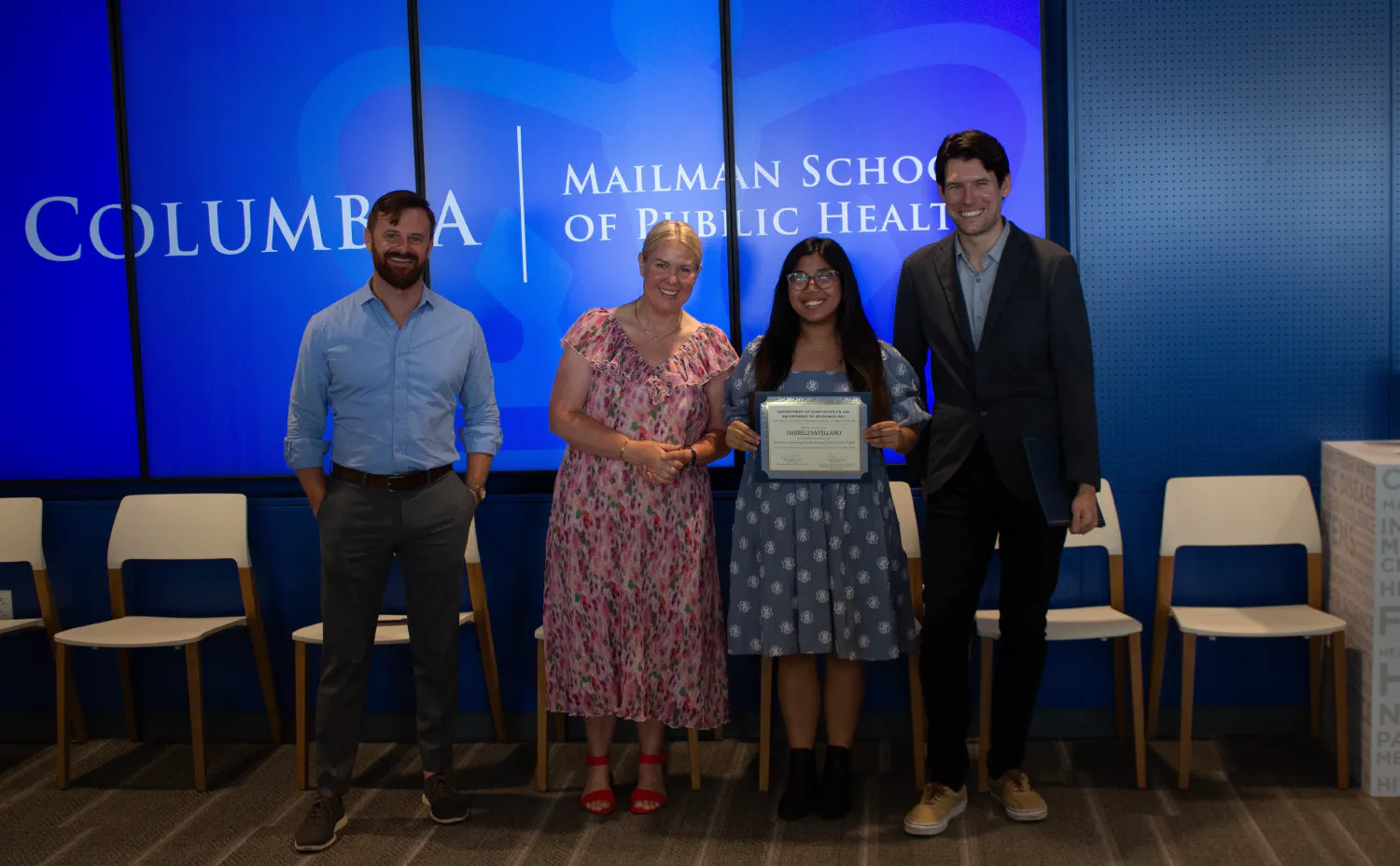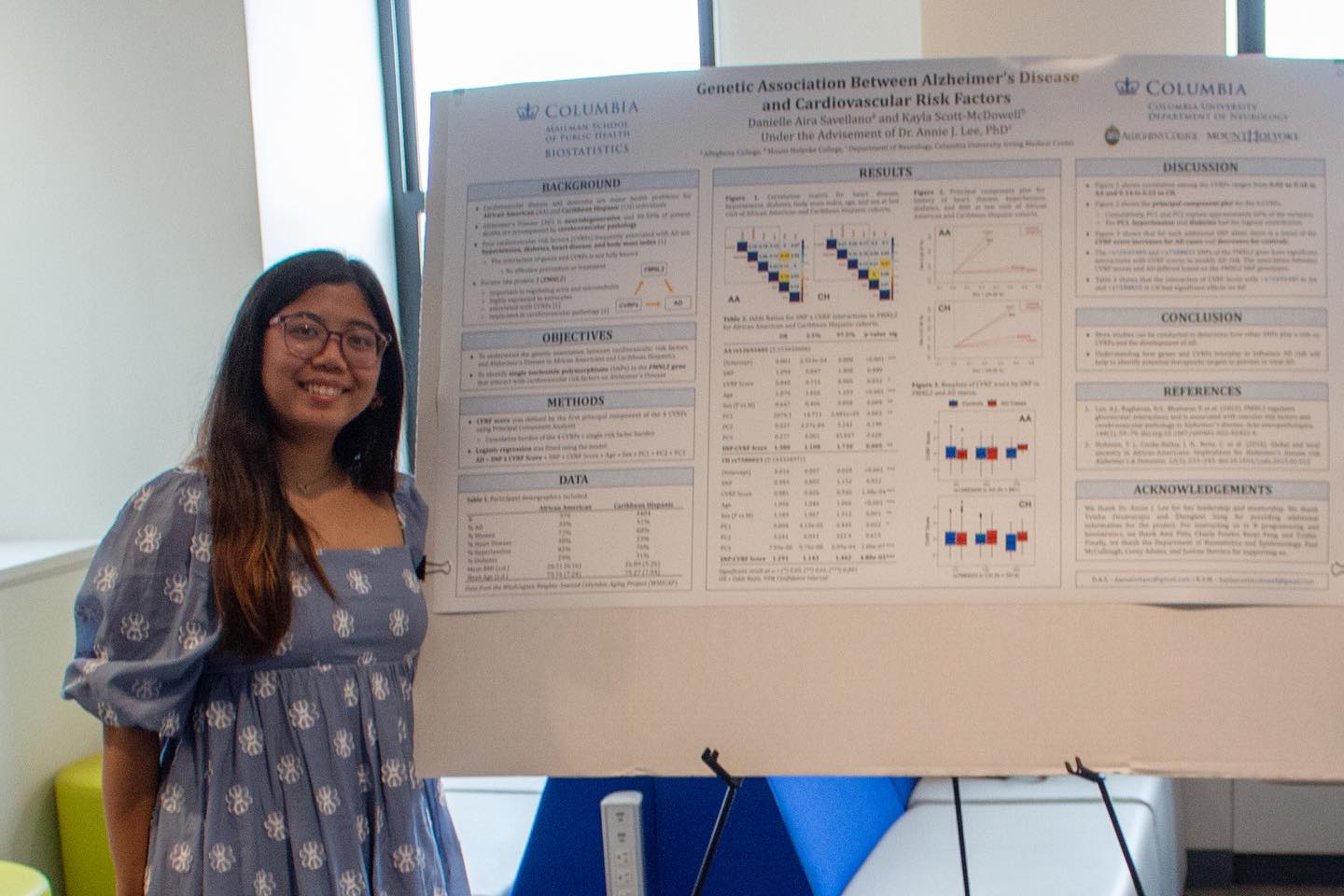Biostatistics and Epidemiology Researcher

Summary
- Accepted into a competitive program with a cohort of 12 undergraduate students
- Crafted the winning case study on Spotify data for the program hackathon with 3 collaborators
- Studied the Genetic Association Between Alzheimer’s Disease and Cardiovascular Risk Factors under the guidance of faculty mentor Dr. Annie J. Lee, PhD
- Utilized R and its packages (i.e.
tidyverse,knitr,psych,corrplot,PCAmixdata,ggplot2) - Coded custom functions to efficiently perform analysis
- Performed and interpreted descriptive analysis, correlation plots, principal component analysis, box plots, and logistic regression
2023 Biostatistics Epidemiology Summer Training (BEST) Program
Each summer, a highly selective group of undergraduates from across the country attend classes in introductory biostatistics and statistical computing, and are engaged in research under the supervision of a faculty member in Columbia University. In its 16th year, the 2023 BEST Program had twelve students who participated in career-building opportunities. With the opportunity to learn about topics ranging from computer simulation of genetic disorders, to classification trees, to models for clinical decision making, students go far beyond traditional classroom education in order to synthesize and integrate all they learn. In doing so, students are able to demonstrate and better appreciate the importance of statistical methods in biomedical research.

Genetic Association Between Alzheimer’s Disease and Cardio-Cerebrovascular Risk Factor
Mentor: Annie Lee, PhD, Assistant Professor of Neurology Science
Mentees: Danielle Savellano and Kayla Scott-McDowell
The primary aim of this study was to identify genes that interact with cardiovascular risk factors (CVRFs) such as hypertension and diabetes to confer Alzheimer’s disease (AD) risk in multi-ethnic cohorts and investigate how they perturb molecular pathways leading to AD through analyzing multi-omics (transcriptomics and proteomics) profiles in humans. First, we identified the genes using gene-based gene-environment interaction test. Then, we used multi-omics profiles in human brains to characterize the functional effects of the candidate genes using regression analysis and their respective disease pathways related to vascular interactions in AD using pathway enrichment analysis.
Program Components
Participants undertake an individualized research project with a Columbia University faculty mentor, including a project symposium at the program’s conclusion. Other components of the program include:
- Course work in Introductory Biostatistics and Statistical Computing
- A seminar series presented by Mailman School faculty and administrators
- Graduate school admissions counseling
- Training in research conduct and ethics
- Training in skills essential for graduate school success
- Social activities
The Biostatistics Epidemiology Summer Training (BEST) Program is funded by a grant from NIH/NHLBI 5R25HL096260-12, the Office of the Dean, and the Department of Biostatistics at Columbia University Mailman School of Public Health.
